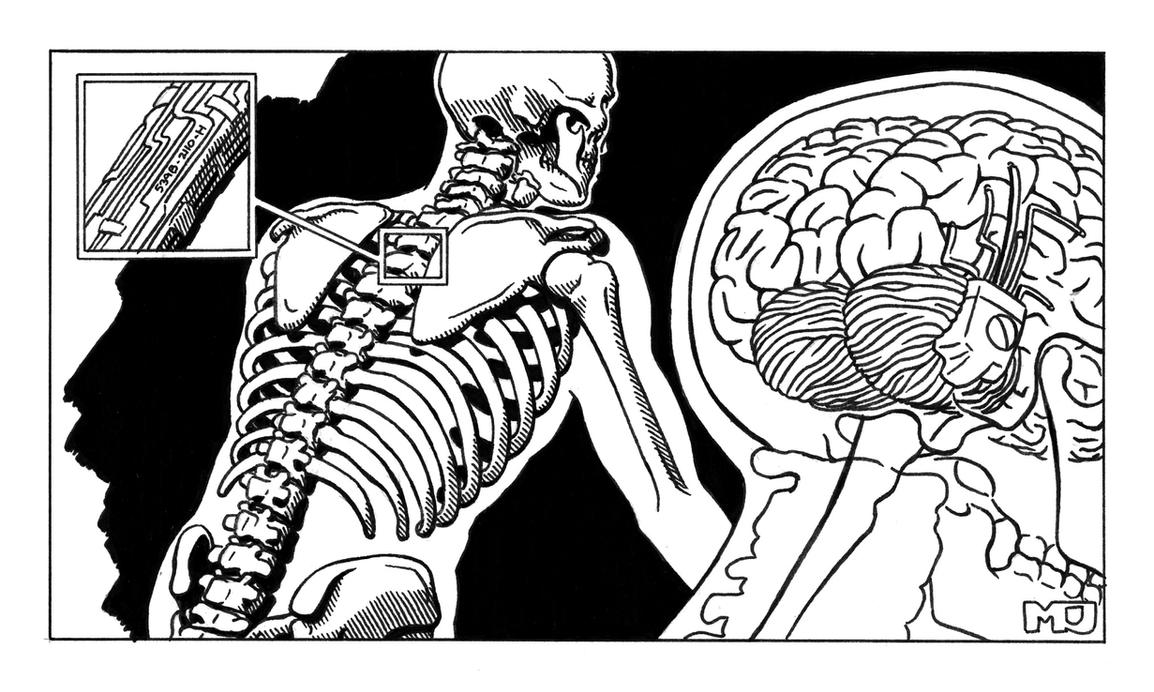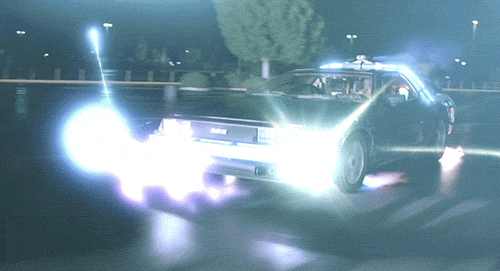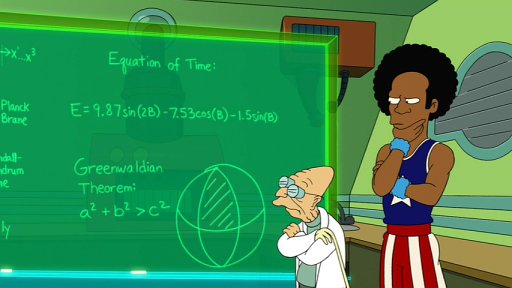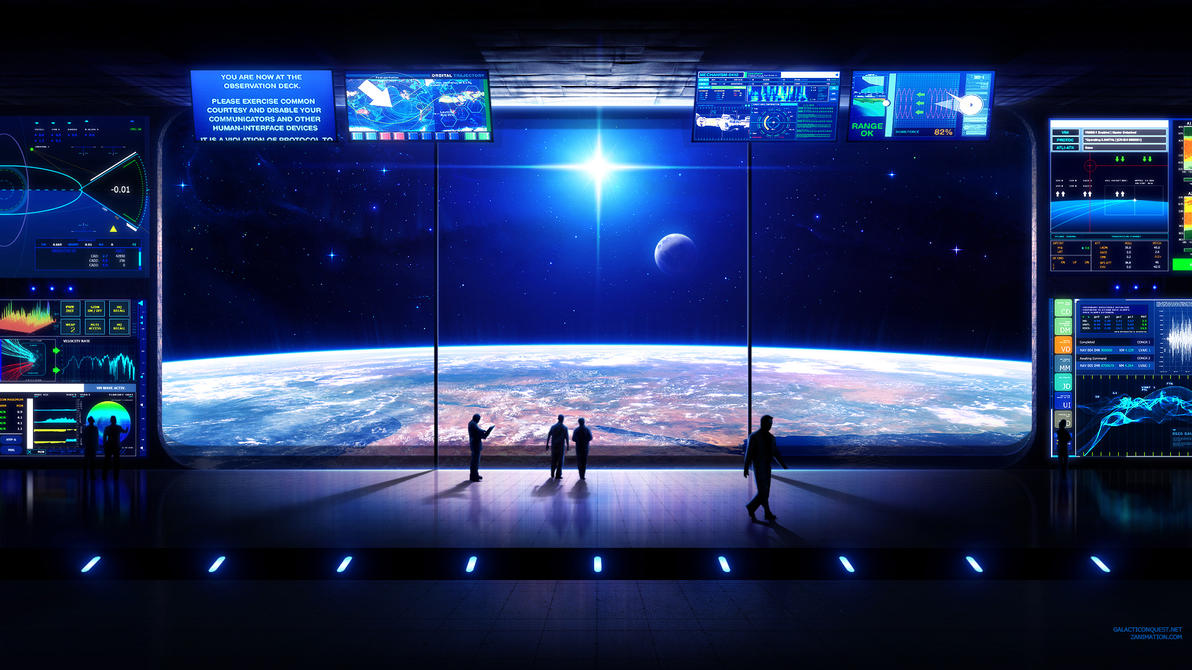One of the most universally difficult things in gaming for a GM to deal with in their games is probably time travel. The difficulty with time travel stems from the nature of cause and effect, the conflicts between linear vs. non-linear storytelling, and ability to effect change vs. being bound by past events (objectively or subjectively) and/or predestination. That all of these things make the use of time travel difficult does not make it any less worth attempting, in fact these things are often what draw us to stories of time travel.
I had originally intended this topic to be a single column but as I started to write I realized that the scope of what I wanted to do was quite larger than a single column. As a result I'm going to break this into multiple parts over multiple weeks, hopefully it'll prove worthwhile. This week I'm going to start by discussing the structure of time itself and the (possible) nature of traveling to and fro within time.
Without further ado ...
The Structure of Time
If time travel is going to be part of your campaign you need to establish how it will function. Its shape and rules. Is time bound as a single series of events, or do choices and changes lead to multiple timelines? Is there some other option? How common is time travel? How easy? Are there limits to how far one can go? How time works is going to influence how travel through time, and changes to events will impact the setting of your game.
A single timeline means that travel backwards and forwards is going present the very real possibility of changing history, or gaining knowledge of future events, and possibly the ability to change those events. Is time mutable, or are events fixed and inflexible? If events are mutable, how easily do changes come about? What about paradox?
And what about travel itself? Can you travel backwards and forwards at will? Are you limited to certain windows of opportunity; nexus points or junctions between timelines? Or can you only move forward in time, skipping over events, but never being able to go back, even to return to your starting point?
All of these are important factors to think about, and to determine before you start adding time travel into your games. I'm going to dive a little deeper into these topics and then in subsequent columns I'm going to dive deep into what I see as the three major ways to use time travel in an RPG.
Upstream, Downstream
When it comes to time travel the first thing to decide on is the allowed directions. This is pretty simple really as there aren't all that many choices.
- Not Possible - Time travel isn't possible, which puts it outside the scope of this blog column, but I mention it for completeness.
- And yes, I realize that you could be pedantic and argue that you can always move forward in time at a rate of 1 second per second ...
- Bi-directional - You can travel backwards and forwards through time in equal measure. This means you can go back, by a lottery ticket, and then pop back "home" to collect your winnings. Alternately you can go forward, find out the winning numbers, and head home to get a ticket before the drawing. If your game is going to have any degree of time travel this is most likely what you'll be using.
- Forward Only - This is how it works in reality (as far as we understand). It's possible to go forward, skipping time, by means of velocities nearing that of light. The person traveling experiences subjective time at one rate while the universe outside experiences time at a greatly accelerated rate (subjectively to the time traveler). On the flip side we can't go back, its a one way trip to the future.
- Backwards Only - This isn't all that common. I can only think of a single example, the movie Primer. In this case once you arrive in the past you need to live through the time to catch back up to your home time. This also means that unless you go way back, or you die, there is the potential for multiple yous being in existence at the same time. Multiple trips back could make for quite a messy reunion with yourself.
- Others? Possibly ...

"Sir, do you know how fast you were going?"
As mentioned before, while I was being pedantic, that under normal circumstances we all travel forward through time at a nice leisurely rate of one second per second (1 s/s). A lot of times in fiction time travel is a reasonably instantaneous process. You leave time point A and arrive at time point B with only an instant's travel time.
What if that wasn't the way it worked? Time travel in Doctor Who does seem to take at least some amount of time, even if only a couple of minutes. As mentioned before, the movie Primer shows shows a form of backwards only time travel; the catch is that you need to spend the same amount of time in the device as you want to go back. Basically you can only achieve a temporal velocity of minus two seconds per second (-2 s/s).
Want to go back five hours and buy a lottery ticket with winning numbers? You need to spend five hours in your time machine, which actually results to a ten hour one way trip. This makes longer trips increasingly more difficult and less feasible, though at the end of the movie it was hinted that one character was building an entire apartment sized machine to be able to travel for longer times and go farther back. Imagine holing up in a massive time machine for ten years; you leave the year 2015 at the age of 30 and spend ten years in your time machine, finally arriving in the year 2005 where your 40 year old self can interact with your 20 year old self's timeline. Not terribly efficient, but maybe you made a
really bad mistake that year ...
You can't get there from here.

Sometimes your very destination is limited. Maybe you can only move within a certain time frame, as shown in
Quantum Leap where Sam could only move about within his lifetime. Or maybe you can only move to points of major energy disruptions within the time frame; Maxwell Mercer in the
Æon Continuum RPGs could only move among the major telluric events (at least at first) apparently coinciding to the three RPGs within that product line.
Perhaps the very structure of time itself determines where you can travel. If the twisting and winding shape of the timeline renders certain events, or certain eras, closer to some than others it may be possible to travel only between these "adjacent" points. Transdimensional TMNT, a supplement that I adore to this day (
and don't just take my word for it), posits a form of time travel that works this way.
Trans-D TMNT explains that time is continuous flow, like a flow of water through a hose. It moves along at a constant rate of one second per second exerting a pressure on all occupants of the timeline as it pushes them along through the tube. Traveling backwards through time by trying to "swim upstream" (as it were) is difficult and energy intensive because you are swimming against the current. This high energy cost to increase or decrease your speed through time makes travel up- and down-stream basically impossible. Luckily for us the very structure of time allows for another solution.
The "hose" that time flows through isn't straight, it is curled up into the shape of a spring creating "Twists" of time. Each twist is a certain "length" of time; in the modern era each twist is around 125 years. While trying to swim up- or down-stream is really
really difficult, stepping outside of the time-stream entirely and moving to a new twist is actually reasonably easy (or maybe just not implausibly difficult). The difficult part is that you can only go back in increments equal to the length of a twist; you can go back 125 years, 250 years, etc. but 50 years just doesn't work. To put it another way: you can hop forward and backward along the twists, but you cannot change your radial position along the outside edge of the spring. It's a little odd, but so is time travel.
Traveling
really far back would seem to require skipping a lot of twists, but thankfully, when long enough, the spring itself is wound up. This creates even longer duration loops called "Cycles" that cover years in lengths ranging from thousands to millions (or even billions if you want to go all the way back) of years. Imagine it as taking a phone cord and coiling that up. Moving from the current era or "cycle" to the prior is much easier than trying to move the same amount of time back by traveling multiple twists into the past or future. Leaving 2015 and going a cycle backward will drop you in the year 13,245 B.C. Once there you can then move up or down local twists (which are 126 years apart) to get to a more exact location.
 |
| The coiled spring structure of time |
This coiled spring structure also gets tighter as time progresses. The twists and coils of the early universe are bigger, with the early coils covering billions of years each and with twists that millions of years "around," while in the modern time the twists have shrunk to 125 years and the "prime cycle (e.g. the present)" is about 30,000 years long (ending a dozen or so centuries into our future). Go further into the future and the twists will continue to contract, as will the cycles.
Getting back to the point, instead of freely traveling to any time you want you are limited to those times that align to your own through the twists and cycles. You're also still subject to the flow of time so if you leave April 1, 2015 and go back 375 years and spend 5 days there before heading "home" you will arrive at April 6, 2015 because you still experienced 5 days of time.
As you can no doubt see after some 1600+ words there's a lot to consider if you want to use time travel in your games. It helps to lay down this kind of structure and information early as it will help you to plot out stories and will help to eliminate confusion. It also gives you an opportunity to look at what has been done before and maybe try and take a new approach. Having an RPG where the characters are able to travel freely in time can be fun, but so too can it be interesting to create a limit or limits that help to build a grander mythology.
As is always the case I am more than willing to hear your thoughts on the matter. Did I miss something? Have I made a mistake? Please let me know. Meantime, for the next article in this series I will be planning to discuss changes to the timeline, and the damage that such actions can potentially cause.
Continue to Part 2










